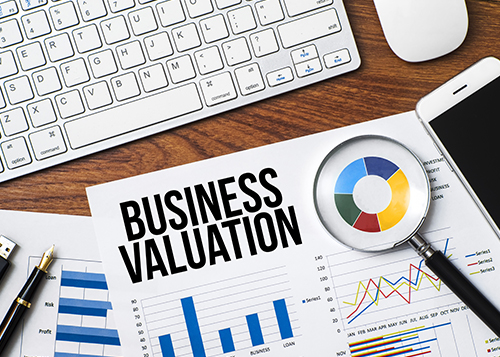Do you think of the professional valuation of your business as a necessary step only when you’re ready to sell your business? While that’s one purpose, don’t be short-sighted: A valuation can serve many ends during the time you own your company.
From Financing To A Better Understanding
Although the economy is relatively healthy, it still poses plenty of challenges for many U.S. companies. Chief among these is financing — it’s not easy to secure because lenders imposed tough standards after the last recession.
A business valuation conducted by an outside expert can help you present lenders with timely, in-depth financial data. Not only will it make it easier for bankers to understand how your business runs, but the discounted cash flow section will show how your expected future cash flows will build value. This can go a long way toward easing lender concern about your ability to compete in the marketplace.
When performing a valuation of your business, a valuator will likely examine several company-specific factors, including:
- Your and your managers’ awareness of market conditions,
- What specific risks you face, and
- Your contingency planning efforts to mitigate these risks.
As you undergo a valuation, you may discover another plus from the process. You might recognize some of your company’s weaknesses. You can then devise ways to strengthen them.
How A Buy-Sell Agreement Enters In
As a business owner, you never know what proverbial winds may blow your way. For example, your partner might want to leave the business at an unexpected time. He or she might decide to retire early, or need to cash out for personal reasons. Or health concerns may enter the picture.
For all of these reasons and more, it’s important to draft and maintain a buy-sell agreement. This contract among a business’s owners sets guidelines for the transfer of their ownership interests. The agreement gives the remaining owners (or the business itself) the right to buy an exiting owner’s interest if a “triggering” event takes place. Such events may include an owner’s desire to leave the company, divorce, disability, retirement, death, or loss of a professional license or certification.
So what does all of this have to do with a business valuation? A valuation of your company plays a key role in the creation and maintenance of a buy-sell agreement. Specifically, it could help you address the preferred valuation method, the appropriate standard of value, the effective valuation date, and the applicability of valuation discounts and premiums.
A Weather Vane
There’s no getting around the fact that a key reason for getting a valuation is to prepare for a business transfer. Even if you aren’t sure you want to buy, sell or gift a business interest, an evaluation may help you get a better sense of whether now is the time.
Most valuators subscribe to transaction databases that report recent selling prices of similar private businesses. In conjunction with input from other professionals, the information gleaned from the valuation can help you come up with a creative deal structure — one that minimizes taxes, provides you with income to fund retirement and meets other transfer objectives.
Establishing Credibility
Additionally, in the eyes of a potential buyer, a formal evaluation adds credibility to your asking price. And if you’re gifting business interests, it’s a must-have to survive IRS scrutiny.
Alternatively, if you’re in a position to buy out a competitor or other business, a valuation should play a critical role in your due diligence. An evaluator can scrutinize the seller’s asking price, including the reasonableness of cash flow and risk assumptions, when negotiating the final sale price.
Never Too Early
Even if you’re not buying or selling a business now, it’s not too early to go through the valuation process. We can recommend a valuation professional.
© 2017
